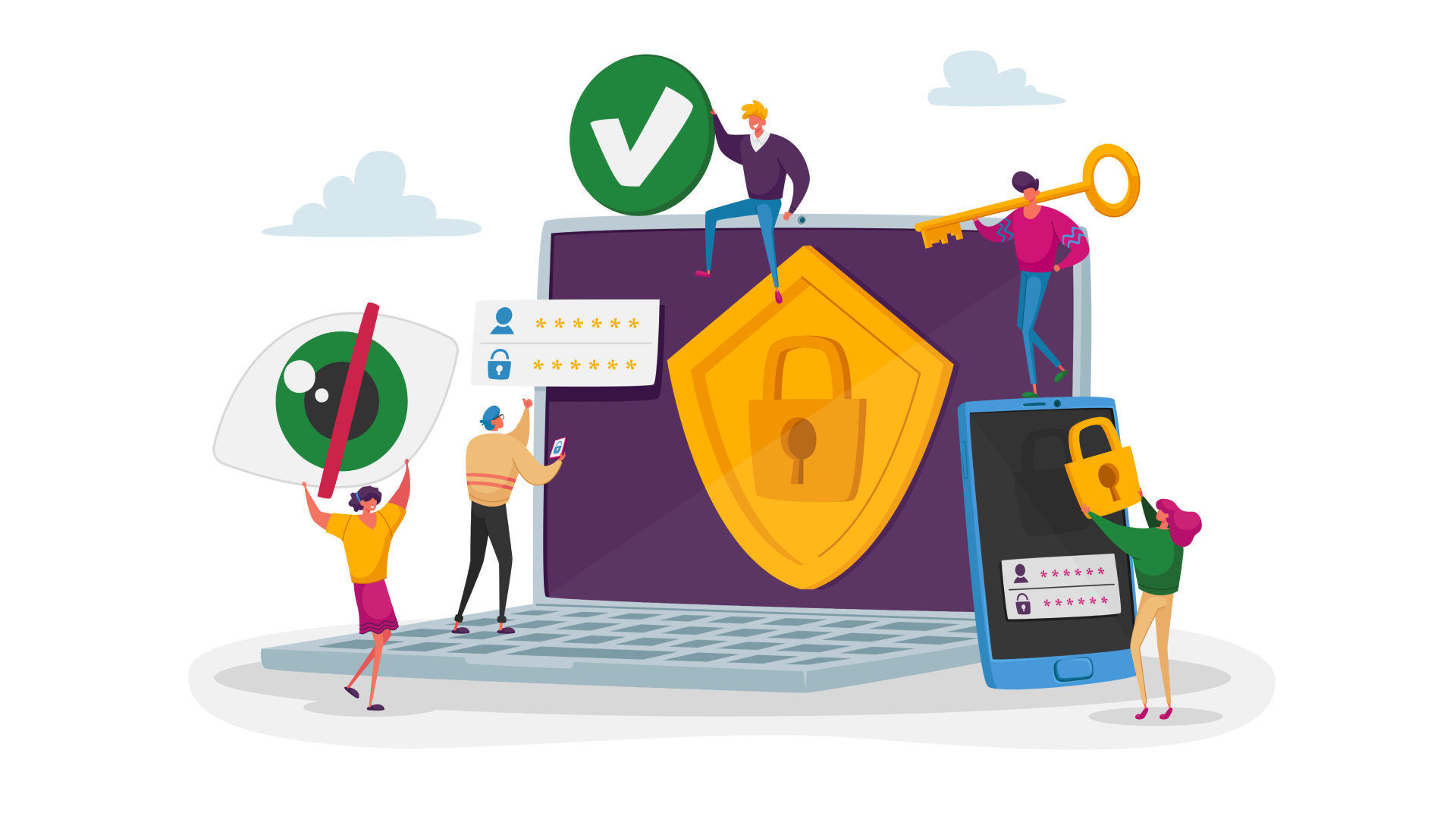November 5, 2024
Safer Payments Are Here: Why Direct Bank Payments are the Future
Direct bank payments, a relatively new entry in the rapidly expanding payment landscape, allows customers to make secure, direct transfers from their bank accounts without the need for a credit or debit card.

In the U.S., when consumers first encounter Direct Bank Payments as a payment option, they often have reservations. This method, a relatively new entry in the rapidly expanding payment landscape, allows customers to make secure, direct transfers from their bank accounts without the need for a credit or debit card. However, many Americans are hesitant to authorize a connection to their bank for payments, especially given the dominant use of credit cards, digital wallets, and Buy Now, Pay Later (BNPL) services.
With frequent media reports of data breaches, cyber fraud, and identity theft, Americans are naturally cautious about new payment options that touch on sensitive financial information. Despite these concerns, Direct Bank Payments—especially when handled by trusted providers like Kartera—are actually among the most secure payment methods available today. In this post, we’ll dive into the security advantages of Direct Bank Payments, how they compare to other popular payment methods, and why both businesses and consumers can benefit from this safe, efficient option.
Why Direct Bank Payments Are Incredibly Secure
Direct Bank Payments, also known as account-to-account (A2A) payments, work without involving credit or debit cards. At the checkout, the process is straightforward:
The customer selects Direct Bank Payment from the payment options.
They choose their bank from a list of supported institutions.
They’re redirected to their bank’s secure environment to log in and approve the transaction.
This process not only minimizes data exposure but also introduces a series of security checks that make Direct Bank Payments one of the safest payment methods available. Let’s unpack the specific security features that make this possible.
1. Customer Consent and Control Over Data
Direct Bank Payments provide customers with full control over their financial data. Before any transaction is initiated, customers must authorize it explicitly. This consent process, facilitated by providers like Kartera, grants access solely for the purpose of completing the transaction, unlike traditional card transactions where card information can remain vulnerable to unauthorized use. Studies show that more than 74% of American consumers express greater trust in payment methods that require explicit authorization for each transaction.
2. Secure Authentication Without Sharing Credentials
One major advantage of Direct Bank Payments is that customers authenticate directly with their bank, so no login credentials are ever shared with third parties. By eliminating the need for usernames or passwords outside of the bank’s secure portal, the risk of credential theft or misuse drops significantly. According to a study by the National Cyber Security Alliance, 30% of data breaches stem from weak or shared credentials. Direct Bank Payments avoid this risk entirely, keeping sensitive data solely within the bank’s encrypted environment.
3. Strong Customer Authentication (SCA)
Direct Bank Payments utilize Strong Customer Authentication (SCA), a two-step verification process that enhances security. In the first step, customers authenticate themselves with their usual online banking credentials. Once logged in, they see the transaction details—including the amount and recipient—and must confirm to authorize the payment. This two-layer security provides a significant boost in fraud prevention, reducing the chances of unauthorized transactions. A recent report from the Federal Reserve found that two-factor authentication methods like SCA reduce fraud by over 65%, a significant improvement compared to card-based payments where criminals can often succeed with just a card number and expiration date.
4. Bank-Grade Encryption and Tokenization
Direct Bank Payments leverage advanced encryption and tokenization to protect customer data throughout the transaction. With bank-grade encryption, the customer’s data is locked within the bank’s secure environment, never exposed to third parties. Tokenization further protects sensitive information by replacing customer details with randomized identifiers. According to data from the Ponemon Institute, encrypted transactions are 30% less likely to result in data loss, and tokenized systems reduce the risk of credential theft by over 80%. Providers like Kartera further bolster security by adhering to rigorous data protection standards, ensuring that customer information remains safe.
Direct Bank Payments vs. Credit Cards: A Statistical Comparison in Security
Credit card fraud has reached concerning levels in the U.S., where over 80% of adults own at least one credit card. The Federal Trade Commission (FTC) reports that nearly 60% of U.S. credit cardholders have experienced unauthorized charges at least once. In 2022 alone, there were an estimated 271,000 cases of reported credit card fraud, and the average loss per victim was $1,400, totaling over $379 million in losses. Moreover, almost three-quarters of those affected have been victims of credit card fraud more than once.
Digital wallet fraud has surged, fuelled by the rise in online shopping and mobile payments. A report by Juniper Research revealed a staggering 45% increase in digital wallet fraud in 2023 alone, costing consumers nearly $500 million. Credit card transactions, another popular payment method, also pose high fraud risks, with fraud rates between 15 and 20 basis points, or $15–$20 per $10,000 of transactions. Similarly, Automated Clearing House (ACH) payments, while generally safer, still reach fraud rates up to 13 basis points ($13 per $10,000) in consumer transactions involving physical goods and time-sensitive deliveries. This elevated risk has led many merchants to restrict ACH usage primarily to lower-risk B2B and SaaS transactions.
In contrast, Direct Bank Payments stand out with fraud rates significantly lower than both credit card and ACH payments, maintaining a level of security that is unmatched across consumer and business transactions alike. With fraud rates often comparable to the lower-risk ACH average for B2B (about 0.14 basis points, or 14 cents per $10,000), Direct Bank Payments offer a compelling advantage, being roughly 2–3 times safer than credit cards and far less vulnerable than ACH in consumer contexts. This security advantage underscores the reliability of A2A payments like Direct Bank Payments, providing businesses and consumers with a trusted, secure option for their transactions.
Consumers’ Shifting Payment Preferences
Americans are increasingly open to new payment methods, as demonstrated by the rise of digital wallets and BNPL services. The latter grew by an astounding 215% from 2019 to 2022, with the BNPL market projected to reach $3.98 trillion globally by 2030. This willingness to embrace alternative payment methods is further evidenced by the success of A2A systems internationally. For example, PIX, Brazil’s instant payments platform, has seen exponential growth since its launch in 2020, with 40% of the adult population using it regularly.
Security is a key factor behind these shifts in payment behavior. A survey from PYMNTS found that 68% of consumers would consider switching to a new payment method if it offered superior security. Direct Bank Payments cater to this demand by providing both high security and ease of use, making them an attractive alternative for Americans who may initially feel wary of moving away from credit cards.
Why Direct Bank Payments with Kartera Stand Out
Direct Bank Payments, especially those facilitated by Kartera, offer a uniquely safe and efficient option for both consumers and businesses:
Enhanced Security
: The multi-layered security system (SCA, encryption, and tokenization) significantly reduces the likelihood of fraud.
Lower Fees
: By avoiding credit card networks, Direct Bank Payments typically come with lower transaction fees. This can save U.S. businesses up to $500 billion annually in processing fees—a massive relief for smaller enterprises where transaction fees can erode profit margins.
Debt-Free Transactions
: Direct Bank Payments don’t create debt, providing a financially responsible alternative to credit-based systems. With 55% of Americans carrying credit card debt averaging $5,733 per person, Direct Bank Payments offer a debt-free option that could help reduce national credit card debt, which stands at over $1 trillion.
Fast Settlements
: Faster settlements mean businesses can access funds more quickly, improving cash flow and customer satisfaction. Data from NACHA, the governing body for ACH payments, indicates that businesses using direct payments reduce settlement times by up to 40%.
A Look Ahead: How Direct Bank Payments Are Transforming the Future of Payments
Direct Bank Payments aren’t just another payment method—they represent a shift toward more secure, efficient, and financially responsible ways to transact. As more U.S. consumers and businesses recognize the advantages of A2A payments, especially when secured by trusted providers like Kartera, the demand for Direct Bank Payments is likely to surge.
With fewer fees, fewer fraud risks, and faster access to funds, Direct Bank Payments offer a compelling choice for both merchants and consumers. From a business perspective, the savings from lower processing fees and reduced fraud can contribute directly to the bottom line, while consumers enjoy a debt-free, secure alternative that safeguards their financial information. In this sense, Direct Bank Payments stand poised to reshape the American payments landscape in favor of greater security, convenience, and control.
To discover how Kartera can help your business grow and keep you ahead of the curve, get in touch with us today by clicking here.
